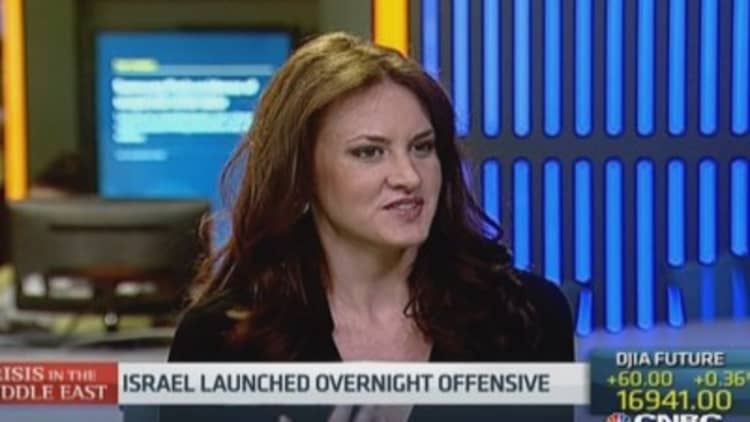The rising price of bread was one reason Hosni Mubarak lost power in Egypt. Food inflation is one reason his replacement, Mohammed Morsi, also lost the job. "Egypt is the largest importer of wheat in the world, but they have to buy it on the spot market," said Philip Blumberg of Blumberg Capital.
That may change.
Blumberg recently reached a deal with Egyptian President Abdel Fattah el-Sisi to build 164 grain storage facilities designed to prevent spoilage, reduce price volatility and eventually lead to a local commodities exchange.
"It's crazy," the American investor said. "The largest wheat buyer in the world is constrained by storage."
Blumberg, a Harvard Business School graduate who made his fortune in South Florida real estate, said his family has a history with agriculture, having farmed cotton and pecans in Alabama and tomatoes in Florida. He began to see the buildings he invested in as commodities, too.
Read MoreUS labs on standby to start work on Ebola drug
"A building is nothing but a bundle of commodities, an assembly of copper, nickel, glass, steel and concrete," his son, David, told Africa Agribusiness.
Philip Blumberg began seeing the need for food security and storage in developing countries, and he decided to create a fund called Blumberg Grain to invest in projects.

It's estimated that 40 percent of grain in developing countries is lost in storage, usually to a combination of heat and moisture.
"In Nigeria, it's 50 percent," Blumberg said. "The numbers are staggering."
The emerging world is a market that frightens off a lot of—maybe the vast majority of—American investors. But Blumberg believes in his technology. His company designed a series of modular storage bins that deflect the sun's heat, keep grain dry and provide security measures against theft. The standard product is 1,200 square meters (almost 13,000 square feet) and can hold 3,000 metric tons of grain, at a cost of $200,000. In some cases, the storage bins are leased rather than sold, and some can run entirely on solar power.
Read MoreEbola: A closer look at this 'frightening disease'
Blumberg said one system is up and running in the Democratic Republic of Congo, and he is preparing the first delivery to Nigeria, where the bureaucracy moves at a glacial place in a country now dealing with Ebola. Still, he said, "it's the largest economy in Africa, and its agriculture is on the decline."
The largest deal so far, however, is the new one signed with Egypt, worth at least $350 million. An article on an Egyptian website said the government hopes to have the 164 storage units ready to replace traditional storage barns, called "dirt shounas," before the end of the harvest next April. (Story continues below the commodities quotes.)
In addition, Blumberg has agreed to invest $250 million in a factory in Egypt to manufacture storage bins, employing 1,000 people in a project KPMG estimates will have a $1 billion impact on the Egyptian economy in the first year. Egypt's minister of supplies is expected to visit the Chicago Mercantile Exchange this summer to learn how a commodities exchange is operated. Blumberg said it's a sea change in attitude from the Morsi government, which he called "the most inept people I've ever seen in government. I never heard the Muslim Brotherhood say, 'The Egyptians need this.'"
In contrast, Blumberg said that the first thing el-Sisi said to him was, "Mr. Blumberg, Egypt needs you."
'The need is immense'
Across North Africa and the Middle East, Blumberg estimates a need for 144,000 prefabricated storage units, and his next target is India. He has a global competitor in China, but that doesn't bother him.
"When you say 'American,' the connotation is quality," he said. "When you say 'Chinese,' the connotation is cheap and poor."
But Blumberg recognizes the main reason no large American players are doing what he's doing is because he's working in risky, volatile places. Apparently it's worth it.
"The rewards are enormous, the need is immense, the profitability is good," he said.
—By CNBC's Jane Wells


